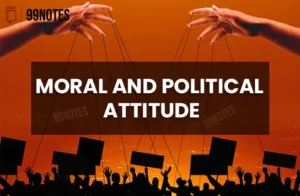5 Dec 2023 : PIB
PRESS INFORMATION BUREAU
5-December -2023
1. 66 Indian Airports are operating on 100% Green Energy.
Topic: GS3 – clean energy.
Context:
- The Ministry of Civil Aviation (MoCA) in India has initiated efforts towards achieving carbon neutrality and net zero carbon emissions at airports.
More information on the news:
- A key step in this initiative involves standardizing the Carbon Accounting and Reporting framework for Indian airports.
- Airport operators with scheduled operations have been advised to map the carbon emissions at their respective airports and work towards carbon neutrality and net zero emissions in a phased manner.
- Developers of upcoming Greenfield Airports and respective State Governments have also been encouraged to strive for Carbon Neutrality and Net Zero, including the use of green energy.
- As a result of these efforts, airports such as Delhi, Mumbai, Hyderabad, and Bengaluru have achieved Level 4+ and higher Airports International Council (ACI) Accreditation and have become Carbon neutral.
- Furthermore, 66 Indian airports are operating on 100% Green Energy.
Source: https://pib.gov.in/PressReleseDetail.aspx?PRID=1982288
2. Initiatives to Support Cultural Industries
Topic: GS2 – Government initiatives
Context:
- The Government of India acknowledges the significance of culture and cultural industries for socio-economic development, livelihood generation, wealth creation, and individual well-being.
Efforts taken by the government in this regard:
- To promote, protect, and preserve various forms of folk art and culture, seven Zonal Cultural Centres (ZCCs) have been established in different parts of the country.
- The ZCCs are located in Patiala (Punjab), Nagpur (Maharashtra), Udaipur (Rajasthan), Prayagraj (Uttar Pradesh), Kolkata (West Bengal), Dimapur (Nagaland), and Thanjavur (Tamil Nadu).
- These ZCCs receive annual grant-in-aid to organize cultural programs and activities throughout the year in their respective states.
- Artists from across India are engaged by ZCCs to showcase their talents during these programs, providing them opportunities to earn a livelihood. They receive honorarium, DA/TA, boarding & lodging, and local transportation for their well-being.
- The Ministry of Culture organizes Rashtriya Sanskriti Mahotsavs (RSMs) to provide livelihood and well-being support to artists. Fourteen RSMs have been organized since 2015, and three Zonal Level RSMs took place in Kota, Pune, and Delhi in 2023 through the ZCCs.
- ZCCs also organize a minimum of 42 Regional Festivals each year, contributing to the livelihood of artists.
- Various schemes, such as Award to Young Talented Artists, Guru Shishya Parampara, Theatre Rejuvenation, Research & Documentation, Shilpgram, OCTAVE, and National Cultural Exchange Programme, are implemented by ZCCs.
- ZCCs undertake initiatives like workshops, camps, exhibitions, conferences, and seminars to support India’s cultural and creative industries.
- Artists from different parts of the country participate in ZCC programs, adapting to diverse cultures and customs, shaping their values and artistic achievements.
- The ZCCs also host stalls by artisans who exhibit their products, contributing to cultural exchange and awareness.
- The Office of Development Commissioner (Handicrafts) under the Ministry of Textiles implements the National Handicrafts Development Programme (NHDP) and Comprehensive Handicrafts Cluster Development Scheme (CHCDS).
- NHDP components include Marketing Support & Services, Skill Development in Handicrafts Sector, Ambedkar Hastshilp Vikas Yojana, Direct Benefit to Artisans, Infrastructure and Technology Support, and Research and Development.
Question: How can government initiatives effectively support and promote cultural industries in the country?
Source: https://pib.gov.in/PressReleseDetail.aspx?PRID=1982320
3. Steps taken by the Government to promote gender equality in education.
Topic: GS3 – gender equality
Context:
- The government is undertaking various steps to promote gender equality and in educational sector – the article highlights steps taken by the government to promote the same.
Steps taken by the government:
- The Department of School Education and Literacy is implementing the Integrated Centrally Sponsored Scheme for School Education called Samagra Shiksha since 2018-19.
- The scheme is aligned with the recommendations of the National Education Policy, 2020, and aims to provide quality education from pre-school to class 12 in an equitable and inclusive environment.
- Major features of the scheme include support for implementing NEP 2020, focusing on RTE Act, Early Childhood Care and Education, foundational literacy, and numeracy.
- The scheme emphasizes holistic, integrated, inclusive, and activity-based curriculum and pedagogy to impart 21st-century skills to students.
- Objectives include enhancing learning outcomes, bridging social and gender gaps, ensuring equity and inclusion, and promoting vocational education.
- SCERTs and DIETs are integral to the scheme, with a focus on strengthening and upgrading them as nodal agencies for teacher training.
- Financial assistance is provided to states/UTs for the strengthening of SCERTs and DIETs under the scheme.
- The scheme subsumed previous initiatives like SSA, RMSA, and TE, consolidating them into Samagra Shiksha from 2018-19.
- The National Mission NISHTHA (National Initiative for School Heads’ and Teachers’ Holistic Advancement) was launched in 2019-20 under Samagra Shiksha for integrated teacher training.
- NISHTHA covers capacity building for improving the quality of school education, extending training to secondary level teachers and foundational literacy.
- Bridging gender and social category gaps is a key objective, with specific interventions for girls and children from SC, ST, minority communities, and transgender.
- NISHTHA includes training on gender dimensions in teaching and learning processes, counseling, legal provisions, and self-defense for girls.
- Self-defense training under ‘Rani Laxmi Bai Aatma Raksha Prashikshan’ is provided to girls in government schools to enhance safety and empower them.
- Financial assistance is provided for self-defense training under Samagra Shiksha.
Question: How can government policies better promote gender equality in education?
Source: https://pib.gov.in/PressReleseDetail.aspx?PRID=1982422
4. STEPS TO STRENGTHEN PUBLIC TRANSPORT ACROSS THE COUNTRY
Topic: GS3 – public transport
Context:
- The article highlights actions by the government to enhance public transportation nationwide.
Efforts taken by the government in regards of public transport:
- Urban transport development is a state subject, with respective State Governments/Union Territories/Urban Local Bodies responsible for planning, management, funding, monitoring, and implementation of urban transport systems.
- The Ministry of Housing and Urban Affairs periodically takes steps to promote and improve public transport systems through policy frameworks, advisories, programs, and schemes to guide better planning and implementation of urban transport concepts.
- The Central Government launched the Prime Minister-eBusSewa in August 2023 to increase the modal share of public transport and reduce Greenhouse Gas emissions by introducing electric buses for city bus operations.
- The scheme covers 169 cities with a population of 3 lakh and above (as per census 2011) and aims to provide 10,000 e-buses for city bus operations on a Public-Private Partnership (PPP) model, supporting the development of the e-bus ecosystem and enhancing last-mile connectivity.
- The estimated outlay for the scheme is Rs. 57,613 crore, and it includes central financial assistance for the construction/augmentation of bus depots, development of behind-the-meter power infrastructure, Intelligent Transport Management System (ITMS), etc.
- The Metro Rail Policy, 2017 mandates that every proposal for Metro Rail should include plans for feeder systems, expanding the catchment area of each metro station to at least 5 kilometers.
- To avail central financial assistance for Metro Rail Projects, the provision of last-mile connectivity is crucial, involving pedestrian pathways, Non-Motorized Transport (NMT) infrastructure, and facilities for para transit modes.
Question: Assess the effectiveness of government initiatives in enhancing public transportation and its impact on sustainability and last-mile connectivity in India.
Source: https://pib.gov.in/PressReleseDetail.aspx?PRID=1982362
5. BOOSTING DOEMSTIC CRUDE OIL PRODUCTION
Topic: GS3 – Energy security.
Long-Term Policy Initiatives:
- Discovered Small Field Policy, 2015.
- Hydrocarbon Exploration and Licensing Policy, 2016.
- Policy for Extension of Production Sharing Contracts, 2016 and 2017.
- Policy for early monetization of Coal Bed Methane 2017.
- Setting up of National Data Repository, 2017.
- Appraisal of Un-appraised areas in Sedimentary Basins under National Seismic Programme, 2017.
- Re-assessment of Hydrocarbon Resources 2017.
- Policy to Promote and Incentivize Enhanced Recovery Methods for Oil and Gas, 2018.
- Policy framework for Exploration and exploitation of Coal Bed Methane (CBM) from areas under Coal Mining Lease allotted to Coal India Limited (CIL) and its subsidiaries 2018.
- Reforms in Hydrocarbon Exploration and Licensing Policy for enhancing domestic exploration and production of oil and gas 2019.
Short and Medium-Term Initiatives:
- Early Monetization of Existing Discoveries.
- Improving Recovery Factor through the implementation of Improved Oil Recovery (IOR) and Enhanced Oil Recovery (EOR) techniques.
- Revival of sick wells.
- Renewal of facilities and other infrastructure.
- Monetization of small and marginal discoveries onshore through service contracts and outsourcing.
- Redevelopment of existing matured fields and development of new fields/marginal fields.
- Induction of suitable technologies on selective fields.
Ease of Doing Business Initiatives:
- Faster clearances through online Urja Pragati Platform.
- Easier compliances through self-certification to reduce the number of approvals.
- Urja Suraksha Samanvay for GIS-based monitoring.
- Greater collaboration through Upstream India Portal.
Overall Outcome:
- Comprehensive and strategic policy initiatives for both the long term and short/medium term to boost domestic oil production and enhance the exploration and production sector in India.
Question: In the context of India’s efforts to enhance domestic oil production, critically examine the long-term and short/medium-term policy initiatives taken by the government.
Source: https://pib.gov.in/PressReleseDetail.aspx?PRID=1982357
For Enquiry

5 Dec 2023 : PIB

5 Dec 2023 : Daily Current Affairs

5 December 2023 : The Hindu Editorial Notes PDF

4 Dec 2023 : Daily Quiz

4 Dec 2023 : Daily Answer Writing

4 Dec 2023 : Indian Express

4 Dec 2023 : PIB

4 Dec 2023 : Daily Current Affairs

4 December 2023 : The Hindu Editorial Notes PDF

Moral and political attitude
December 2023 Pib 5 Dec 2023 : PIB PRESS INFORMATION BUREAU
4-December -2023
1. Prime Minister pays tributes to Dr. Rajendra Prasad on his…
Daily Current Affairs 5 Dec 2023 : Daily Current Affairs Daily Current Affairs
5-December-2023
1. Cyclone-triggered rain brings Chennai to a halt, claims 6…
December 2023 The Hindu 5 December 2023 : The Hindu Editorial Notes PDF The Hindu Editorial
5-December-2023
1. A dark shadow on New Delhi’s credibility.
Topic: GS2 –…
Daily Quiz 4 Dec 2023 : Daily Quiz 4 Dec 2023 : Daily Quiz…
mains answer writing 4 Dec 2023 : Daily Answer Writing Mains Answer Writing
4-December-2023
1. Examine the essential principles of the Subsidiary Alliance…
december 2023 indian express 4 Dec 2023 : Indian Express Indian Express
4- December-2023
1) Indian Navy: A Beacon of Aatmanirbharta
Context:
In discussing…
December 2023 Pib 4 Dec 2023 : PIB PRESS INFORMATION BUREAU
4-December -2023
1. Prime Minister pays tributes to Dr. Rajendra Prasad on…
Daily Current Affairs 4 Dec 2023 : Daily Current Affairs Daily Current Affairs
4-December-2023
1. BJP sweeps Hindi belt, Cong. bags Telangana.
Topic: GS3 –…
December 2023 The Hindu 4 December 2023 : The Hindu Editorial Notes PDF The Hindu Editorial
4-December-2023
1. India, disability inclusion and the power of ‘by’.
Topic: GS3.
Global…
attitude Moral and political attitude Attitude is the predisposition of a person to act towards a stimulus. We have already discussed various…


